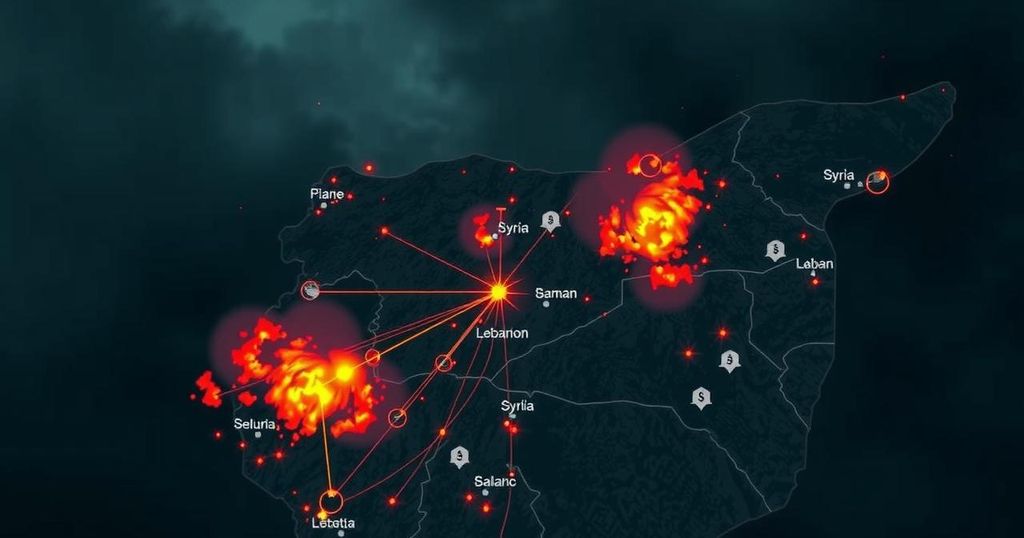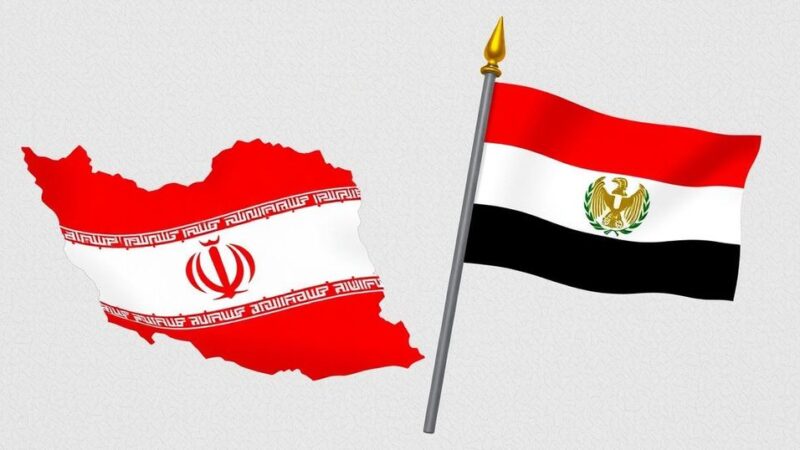Israeli airstrikes targeted Hezbollah weapons smuggling sites along the Syrian border, asserting ceasefire violations. Concurrently, an Israeli strike in Gaza resulted in civilian casualties, including members of World Central Kitchen. The ceasefire remains fragile amid ongoing military actions, reflecting the complex and escalating conflict.
On Saturday, Israeli military aircraft conducted strikes targeting Hezbollah weapons smuggling sites along the border between Syria and Lebanon, asserting that these actions constituted breaches of a recently established ceasefire. The Israeli military noted that the attacked sites had been involved in illicit arms transfers from Syria to Lebanon after the ceasefire came into effect. The ceasefire has faced continued sporadic violations, with Israel asserting its right to respond to any perceived breaches. Meanwhile, the broader conflict continues unabated, particularly in Gaza, where Israeli military operations remain active.
In Gaza, Israeli airstrikes resulted in the deaths of five individuals, including three workers from the food charity World Central Kitchen. Reports indicate that these casualties occurred during an attack on a vehicle identified by Israeli forces as connected to Hamas militants involved in the October 7 assault on Israel. Notably, the Israeli military stated that the vehicle had not coordinated any aid delivery with their forces, despite previous arrangements that had been established with humanitarian organizations.
Eyewitness accounts described subsequent Israeli strikes that targeted rescue workers who arrived to assist the victims. The humanitarian situation remains dire in the region, with many displaced Lebanese citizens returning to their homes amidst ongoing military tensions. The ceasefire, brokered by the United States and France, allows for a two-month halt in hostilities, with both Hezbollah and Israeli forces expected to maintain specific movements along the border during this period.
The ceasefire was initially agreed upon in light of escalating tensions following Hezbollah’s offensive actions which began in solidarity with Hamas. Recent reports indicate that over 3,760 individuals have died in Lebanon due to Israeli bombardments since the conflict’s escalation, many of whom were civilians. In contrast, at least 1,200 Israeli fatalities have been reported, predominantly among civilians, underscoring the severe human toll of the ongoing hostilities between the two factions.
The war in Gaza was ignited by Hamas’ coordinated assault, resulting in a substantial Israeli military response that has reportedly claimed the lives of more than 44,000 Palestinians. This complex and fluid conflict continues to have profound humanitarian implications as military engagements show no signs of abating.
The current hostilities along the Syria-Lebanon border and in Gaza are driven by a complex backdrop of regional tensions. Following Hamas’ attack on Israel on October 7, 2023, which resulted in a significant loss of life, Israel’s response has included military actions in both Gaza and against Hezbollah positions in Lebanon. The recent ceasefire agreement, facilitated by the United States and France, aims to create a temporary halt to the violence but is challenged by ongoing violations and military operations. Reports indicate staggering casualties from both sides, with civilians disproportionately affected in the conflict, which reveals profound humanitarian crises that have emerged as a result of the escalated fighting.
In summary, the situation along the Syria-Lebanon border remains tense following Israeli airstrikes targeting Hezbollah with claims of ceasefire violations. The humanitarian crisis in Gaza continues with tragic losses, including civilian casualties associated with charity workers. The ceasefire, though designed to curtail violence, is fragile and has yet to address the ongoing conflict in Gaza or ensure lasting peace between Israel and Hezbollah. The broader ramifications of this turmoil highlight the urgent need for sustained international diplomatic efforts to restore stability in the region.
Original Source: www.cbsnews.com







